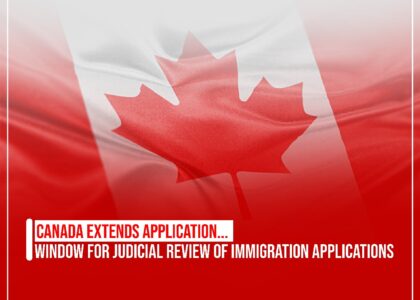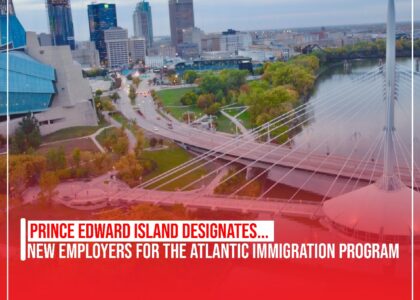A significant decrease in visa applications has been recorded in the UK following the introduction of restrictive immigration policies aimed at reducing legal migration. According to provisional data from the Home Office, the number of visa applications for work and study dropped by nearly 400,000 between April and December 2024 compared to the same period in 2023. This represents a 42% decline, with the total applications falling from 942,500 in 2023 to 547,000 in 2024.
The UK government’s policy changes were designed to reduce migration by 300,000 annually. However, the impact of these measures has been especially pronounced among overseas students and foreign care workers, whose numbers have seen sharp declines.
Key Factors Behind the Decline
1. Restrictions on Overseas Care Workers
One of the most significant drivers of the decline was the reduction in health and care worker visa applications. Between April and December 2024, applications in this category plummeted by 79%, falling from 299,800 in 2023 to just 63,800 in 2024. The decline is largely attributed to policy changes that banned overseas care workers from bringing family dependents with them. This has drawn strong criticism from the social care sector, which labeled the move as “brutal” and warned of a workforce crisis. Many social care organizations had previously relied on foreign workers to fill critical staffing gaps.
2. Impact on Overseas Students
Applications for sponsored study visas also experienced a substantial drop, decreasing by 29% during the same period. The total number of applications fell from 546,100 in 2023 to 389,800 in 2024. The changes included restrictions preventing international students from bringing dependents to the UK and increased scrutiny on visa requirements.
Universities have raised alarms about the financial repercussions of these policies. With frozen domestic tuition fees and a decline in international student enrollment, many higher education institutions are facing significant funding challenges. The reduction in overseas students also threatens the diversity and global standing of UK universities.
3. Salary Threshold for Skilled Workers
Another policy change that contributed to the decline was the increase in the salary threshold for skilled worker visas. The threshold was raised to £38,700, making it more difficult for foreign professionals to qualify. Despite these changes, skilled worker visa applications only saw a marginal decrease of 3%, from 96,600 in 2023 to 93,800 in 2024. This category remained relatively stable due to ongoing demand in specific sectors, including technology, engineering, and healthcare.
Also Read: Italy to Mandate Biometric Data for Long-Term Schengen Visas in 2025
Implications for Key Sectors
1. Social Care Sector
The social care industry has been one of the hardest hit by the new immigration policies. The ban on dependents and reduced access to foreign care workers have led to staffing shortages in an already struggling sector. Industry leaders have expressed concerns about the long-term viability of care services and the potential impact on vulnerable populations.
2. Higher Education
The decline in international student numbers poses a serious threat to the UK’s higher education sector. Many universities rely heavily on tuition fees from overseas students to fund academic programs and research initiatives. The financial strain caused by the decline could lead to budget cuts, reduced staffing, and diminished resources for students.
3. Broader Economic Impact
The overall reduction in visa applications could have far-reaching consequences for the UK economy. International students and skilled workers contribute significantly to economic growth through tuition fees, consumer spending, and tax revenue. The drop in these categories may hinder the UK’s ability to compete globally and address labor shortages in key industries.
Criticism of the New Policies
The government’s immigration restrictions have faced widespread criticism from various stakeholders. Universities, social care organizations, and business leaders have all expressed concerns about the unintended consequences of these measures. Critics argue that the policies prioritize short-term political goals over long-term economic and social benefits.
Lack of Support for Affected Sectors
Many experts believe that the government has not provided adequate support to sectors affected by the changes. For example, the social care sector’s reliance on foreign workers has not been addressed through alternative solutions, leaving many organizations struggling to fill critical roles.
Challenges for International Students
The restrictions on dependents and increased visa requirements have made the UK less attractive to international students. Competing countries, such as Canada and Australia, have adopted more welcoming immigration policies, further exacerbating the decline in student applications to the UK.
Strategies to Mitigate the Impact
To address the challenges posed by the new immigration policies, stakeholders have proposed several strategies:
- Revisiting Policy Changes: Policymakers could consider revising some of the more restrictive measures, such as the dependents ban and salary thresholds, to strike a balance between reducing migration and supporting key sectors.
- Incentivizing Domestic Workforce Growth: Initiatives to train and retain domestic workers in industries like social care could help reduce reliance on foreign labor.
- Enhancing Support for International Students: Universities could introduce scholarship programs and support services to attract and retain international students despite the policy changes.
- Collaborating with Industry Leaders: The government could work closely with sector representatives to develop targeted solutions that address workforce shortages and economic challenges.
Conclusion
The sharp decline in UK visa applications following the introduction of restrictive immigration policies has raised significant concerns across various sectors. While the measures were intended to reduce legal migration, the unintended consequences have highlighted the critical role that international students and foreign workers play in the UK’s economy and society.
As the government evaluates the impact of these policies, it is essential to consider the long-term implications for the UK’s global competitiveness and economic resilience. By adopting a more balanced approach to immigration, the UK can address domestic concerns while maintaining its status as a desirable destination for talent and education.





